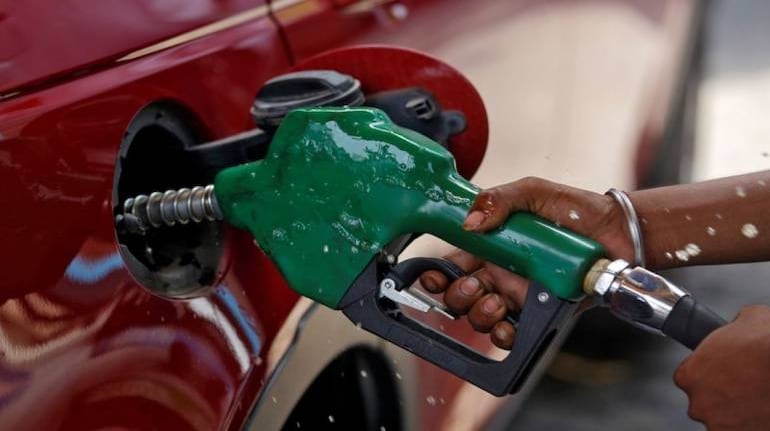



Bulk consumers of diesel were notified of yet another increase in prices last week, which has led to the widening of the gap between retail and bulk prices of the fuel, with the retail prices being significantly cheaper.
Buying in bulk is usually cheaper as economies of scale kick in, reducing the per-unit cost. So was the case with diesel. Traditionally, bulk buyers enjoyed cheaper rates than retail consumers. But a series of increases in bulk high-speed diesel (HSD) prices at a time when retail prices have remained unchanged has resulted in a reversal of the trend.
Reliance Industries Ltd (RIL) has said that the bulk customers are turning to retail outlets after an increase in bulk diesel prices made prices Rs 25 a litre higher than retail prices. Officials from other oil marketing companies confirm the trend.
Here’s all you need to know on how bulk diesel has become more expensive than that sold at retail outlets, and what this means:
How and when was the price revised?State-owned oil marketing companies (OMCs) —Indian Oil Corporation Ltd, Bharat Petroleum Corporation Ltd and Hindustan Petroleum Ltd—revise diesel prices for bulk buyers every fortnight. They are allowed to revise change for retail fuel on a daily basis.
The price revision is based on international product prices. Private fuel retailers typically benchmark their prices to PSU prices.
While OMCs have been steadily raising the price of bulk diesel in line with the 40 percent increase in crude oil prices internationally in the last six month, they have not touched the retail fuel prices, last revised on November 4, 2021. This has led to retail price being cheaper by Rs 25 a litre compared with bulk fuel.
OMCs do not reveal bulk fuel prices as it is a highly competitive space. Sources at the companies told Moneycontrol that as per the last change, which was effective from March 16, bulk diesel price in Mumbai municipal area was increased to Rs 1,22,045 per kilolitre (kl) from Rs 1,03,215 per kl.
This means that a bulk consumer in Mumbai would have to shell out Rs 122 per litre for diesel which is available at Rs 94.14 per litre at retail units.
Who are the bulk users?The main bulk buyers of diesel include Indian Railways, transport companies, manufacturing units and commercial centres like malls.
How are bulk users dealing with this in the short term?Petrol pump owners said that many transportation companies are souring fuel for their fleet from retail outlets as it is cheaper than the bulk rates. RIL said it has witnessed a surge in demand in March as both bulk and retail consumers are buying fuel in advance anticipating an increase in fuel prices.
“There is a massive surge of demand at fuel stations (retail outlets) due to increased delta of around Rs 25/litre between retail and industrial price of diesel, leading to heavy diversion of bulk HSD (direct customers) to retail outlets. There is also a very heavy lifting of fuel by dealers and both B2B & B2C customers, who have advanced their purchases, to top up their tanks and capacities in anticipation of price increase which is overdue,” RIL said.
This has burdened the retail outlet infrastructure.
Petrol pump dealers and reports suggest that the supply of both petrol and diesel has been reduced at some stations as companies are facing losses on the sale of these products.
What does higher bulk diesel prices mean in the medium to long term?Bulk users of diesel eventually pass on the burden of higher costs to consumers. Therefore, it will have a cascading effect on businesses across sectors and subsequently impact individuals and households.
Public transport will become expensive, and so will the service charge of transporters and freighters. This would put an upward pressure on prices of all commodities that are transported and may lead to increase in prices of goods and services. If fuel prices continue to rise, especially that of diesel, it will lead to a rise in headline inflation.
What does it mean for retail consumers of fuel?Retail fuel consumers have been anticipating a rise in petrol and diesel prices for some time as OMCs have not increased prices in line with the increase in crude oil prices.
The increase in bulk prices indicates the kind of revision that may be pending in retail prices. Crude oil prices touched highs of around $130 per barrel recently, but despite having eased off a bit, still trend around $100 per barrel with geopolitical uncertainties adding to the volatility.
Industry executives and petrol pump dealers believe that an increase in fuel prices by OMCs is imminent. All eyes will now be on the government to see if they choose to reduce excise duty on fuel to offer some cushion to consumers.
Disclosure: MoneyControl is a part of the Network18 group. Network18 is controlled by Independent Media Trust, of which Reliance Industries is the sole beneficiary.
Discover the latest Business News, Sensex, and Nifty updates. Obtain Personal Finance insights, tax queries, and expert opinions on Moneycontrol or download the Moneycontrol App to stay updated!
Find the best of Al News in one place, specially curated for you every weekend.
Stay on top of the latest tech trends and biggest startup news.